The Roundup Top Ten for March 4, 2022
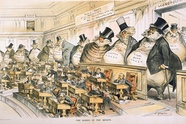
Seize the Oligarchs' Wealthby Faith HillisSeizing assets and cracking down on money laundering is the best chance to turn Russia's oligarchical ruling class away from aggression in Ukraine. |
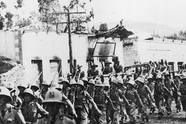
Sanctions are an Economic Weapon. Targeting Mattersby Nicholas MulderThe Biden approach shows a reframing of economic sanctions from being a deterrent to being a non-military weapon of war. This has happened before, and history shows that sanctions against an aggressor nation can be expected to fail unless they are paired with aid to Ukraine. |
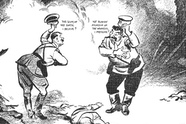
Putin's Historical Memory Laws Foreshadowed Ukrainian Invasionby Francine HirschLegal penalties for critical interpretations of the Soviet role in the second world war are an effort to prop up a nationalist version of Russian history that is being used to justify the invasion of Ukraine as a humanitarian and antifascist measure. |

In the Midst of CRT Controversy, Don't Ignore the Impacts of Many Teachers' Racismby Ranita RayAmerican students need a curriculum that is honest about the impact of racism in the nation's history. But students of color also need protection against prejudice, cruelty, and indifference from their teachers, which often mirrors the nation at large. |

Broken Homes of the Drug Warby David HelpsRather than a mistake or an isolated instance of excess, a notoriously brutal and destructive LAPD raid on an apartment complex in 1988 should be seen as part of a political attack on the city's Black poor, enabled by cultural stereotypes of families of color. |
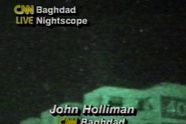
War as a Spectator Eventby Nicole HemmerIt's necessary to consider the ethics and morality of consuming warfare as a spectator event, and to temper emotional reactions spurred by images of suffering with understanding of their context. |

The History of Tying Up Traffic for Protestby David GreenbergMore militant leaders in the Black freedom movement advocated obstructing traffic on a large scale as an expanded form of nonviolent direct action; the tensions these plans provoked in the movement show that there are seldom clear principles for which movement tactics are legitimate, outside of our opinions of their goals. |

War Torn: Confronting the Problems of the Nationlessby Nick TurseThose displaced by war, persecution, and economic desperation constitute more than a billion people. The "nationless" are the third-largest nation on Earth, and their ranks will only grow. |

Building Racial Dialogue (and a Department) In a Time of Backlashby Leora Auslander and Atom GetachewWhen many stakeholders were inclined to suspicion or outright hostility, building an academic department to study race, ethnicity and migration required labor-intensive dialogue not to split the difference between opposing sides but to build a majority coaltion of support. |
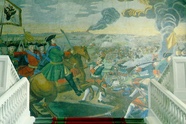
The Long History of Russian Empire Behind Putin's Territorial Goalsby Lynne Hartnett"Putin understands the post-Soviet global order through the prism of Russia’s long history. And that history is inextricably tied to Russia’s dynamic imperial mission both in the past and today." |